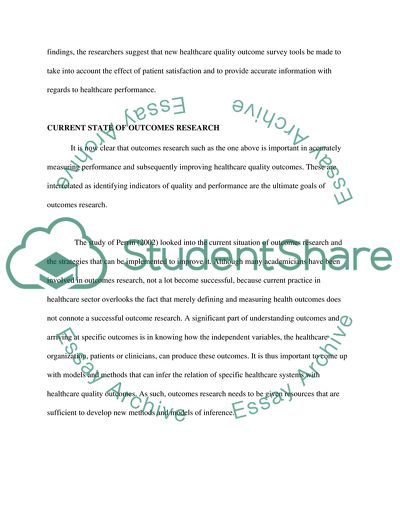Article Review: Annotated Bibliography on Healthcare Quality Outcomes Assignment - 1. https://studentshare.org/medical-science/1773383-healthcare-quality-outcomes
Article Review: Annotated Bibliography on Healthcare Quality Outcomes Assignment - 1. https://studentshare.org/medical-science/1773383-healthcare-quality-outcomes.


